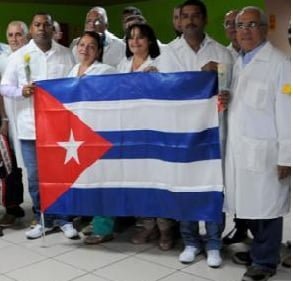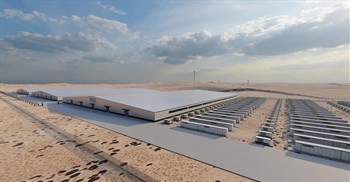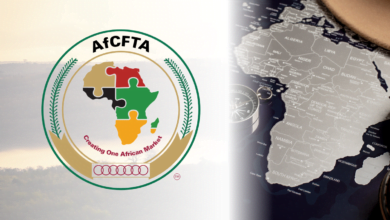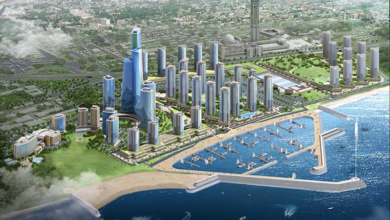
The Algerian doctors are angry and they are making this known. However, the shortage of health personnel is not yet a pressing issue, due to a strategic partnership with Cuba. The Caribbean island is an official source of doctors for Algiers.
Zahra Rahmouni, Alger
In Algeria, the doctors are still in angry. The last meeting between representatives of the Ministry of Health and members of the Algerian Resident Physicians Autonomous Collective (Camra) took place. This took an hour for the doctors’ representatives to slam the door of the Department of Health.
Face to the social movement, the algerian state found a solution with Cuba. The Caribbean state is a majof partner in the region for Algiers. Therefore, Mokhtar Hasbellaoui, the Algerian Minister of Health, did not participate in the latest negotiations with the trade union representatives. He was in Cuba for the 21st session of the Algerian-Cuban Joint Commission for Bilateral Cooperation. During this event, several three-year agreements were signed. Algeria will still supply the island with oil while Cuba will send more doctors to Algeria. An announcement lived as a provocation by Algerian resident doctors whose protest movement has been going on for several weeks.
On Thursday, the Ministry of Health announced that a new meeting was to be held on Sunday 4 February, but the members of the Camra are now waiting for the intervention of the Prime Minister or the President of the Republic.
Military and civilian service
One of the main demands of residents is the repeal of compulsory civil service. This provision, introduced by a law dating from 1984, requires new specialist doctors to be assigned to a public health establishment for a period of one to four years, depending on the geographical areas of the country. Many doctors assigned to medical deserts in the southern or highland areas denounce archaic working conditions harmful to patients and the lack of resources for their care, especially for transport and housing.
“We are not refusing to do the civilian service, we are proposing the introduction of an incentive system. There is no question of a doctor going to isolate himself in the south or other isolated areas. Why should he sacrifice everything to do no favours? « , asks Amine Nalli, union steward of doctors in Algeria. “We have observed that since 1968, there has been the same system that sanctions when there is no health coverage, »explains Amine Nalli. “The proof is that if you do polls in the hospitals of large hospitals in the north, you will find that 60 to 70% of patients come from deprived areas in the interior and south, that’s the real problem,« he defends. According to the latter, care must be taken to ensure that the civil service is not seen as a solution for adequate care of citizens’ health. Resident doctors also denounce the criminalization of the medical act and military service from which they are not exempted.
Despite the court ruling two weeks ago declaring their strike « illegal », the 15,000 « residents » do not intend to stop their movement. “The first claims date from 2011, “recalls Amine Naili. “They won’t wear us out. In January 2018 there was a boycott of end -of-study exams, which is a first in Algeria,” he futher explains.
The movement is radicalizing and some are even thinking about the collective resignation. » We are studying the issue and if so, it will be historic because there will be a real embarrassment for everyone, whether doctors, citizens or the State”, he told.
Cuban doctors in Algeria, Algerian doctors in France
The drop in oil imports from Venezuela prompted Cuba to buy from the Algerian friend. Cuba will receive 2.1 million barrels of Algerian oil in 2018, the same volume as for the year ended, a Sonatrach official told Reuters. In exchange, the number of Cuban doctors practising in Algeria will have to increase. No figures have been provided by the Algerian Ministry of Health, but since the country’s independence, cooperation between the two states has never ceased to exist. Cuban medical teams are also present in the south and the centre, notably in Ouargla, El Oued, Bechar, Djelfa and M’ Sila. Faced with the difficulties they encounter, some Algerian doctors have chosen to leave Algeria to practice in France. Paris has also relaxed the conditions for the practice of the medical profession for foreigners.





